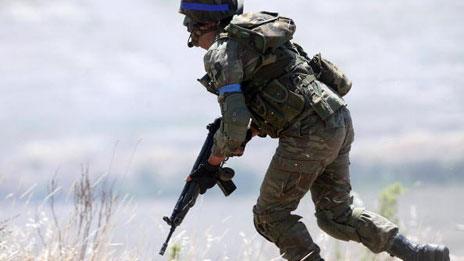Gay Syrian man beheaded and mutilated in Turkey
- Published
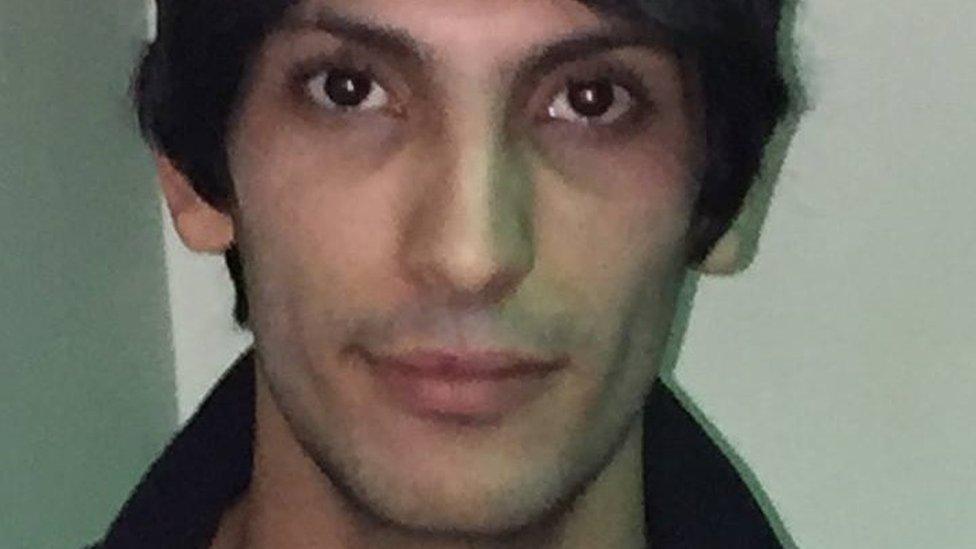
Mr Sankari's body was horribly mutilated, friends told a gay rights group
The headless, mutilated body of a gay Syrian man has been identified by gay housemates in Istanbul who say he had been gang-raped previously.
The friends of Muhammad Wisam Sankari told a Turkish gay rights group, kaosgl.org, that they had been threatened by violent male gangs.
"I am so scared," one of them said.
Mr Sankari, a refugee, arrived in Istanbul a year ago. His body was found in Yenikapi, a central district, on 25 July. No arrests have been made.
Kaosgl.org reported, external that Mr Sankari had been trying to get to another country as a refugee because his life was in danger.
One of his housemates, called Rayan, said a male group had kidnapped Mr Sankari about five months ago, beaten him up and raped him.
"We complained to the police headquarters but nothing happened," he said.
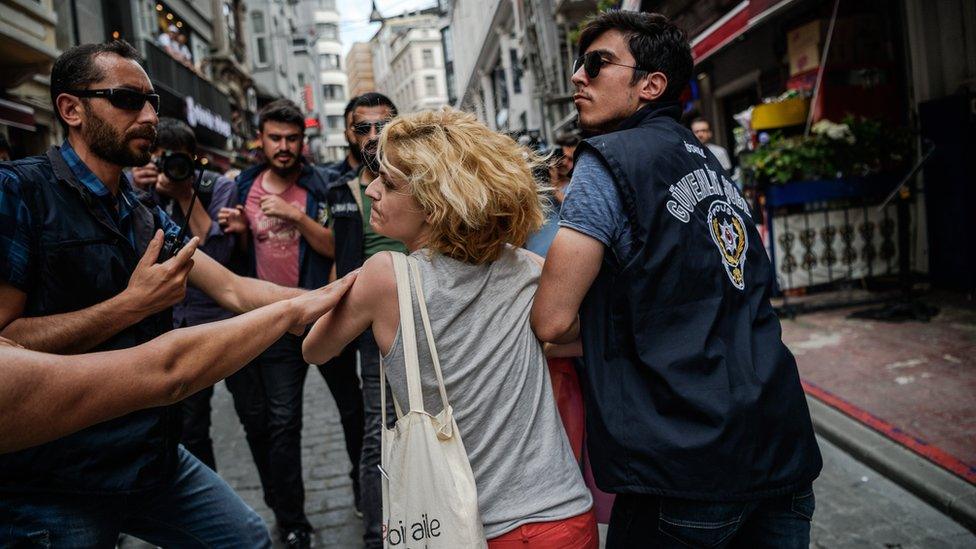
Turkish police broke up an LGBT rally in Istanbul in June
Another of Mr Sankari's friends, Diya, said the United Nations was also failing to protect the gay community in Turkey.
"I get threats over the phone... It does not matter if you are Syrian or Turkish, if you are gay you are everyone's target. They want sex from you and when you don't they just tag along... Who is next?" Diya said.
In June, Turkish police fired rubber bullets and tear gas to disperse gay activists who tried to hold an LGBT rally in Istanbul, despite a ban on the Gay Pride parade.
Homosexuality is illegal in many countries in the Middle East and although it is not against the law in Turkey, analysts say homophobia remains widespread.
Hate crimes
Cagil Kasapoglu of the BBC Turkish Service says hate crimes against LGBT individuals in Turkey mostly go unreported.
According to kaosgl, there has been a rise in human rights violations based on sexual orientation in recent years.
Under the heading "hate crimes" the organisation recorded five murders, 32 attacks and three suicides in Turkey last year.
It believes the number of such murders over the past six years is more than 50.
Syrian gay refugees in Turkey suffer even more, as their legal status is precarious - they are usually undocumented and most are reluctant to report assaults to police, our reporter says.
The Turkish authorities cited "safeguarding security and public order" as the reason for banning Gay Pride in Istanbul this year. The parade was also banned last year.
Assaults on LGBT people in Turkey have mostly been blamed on ultra-conservative Muslims and an ultra-nationalist youth group, the Alperen Hearths.
The harassment is also related to a rise in homophobic rhetoric in conservative media and social media, Cagil Kasapoglu says.
Such rhetoric was used by Turkish ultra-conservative media when reporting the murder of 49 people in June by a gunman in a gay nightclub in Orlando, Florida, she says.
Gunman Omar Mateen, a US citizen, appeared to have an interest in Islamist extremism.
- Published19 June 2016
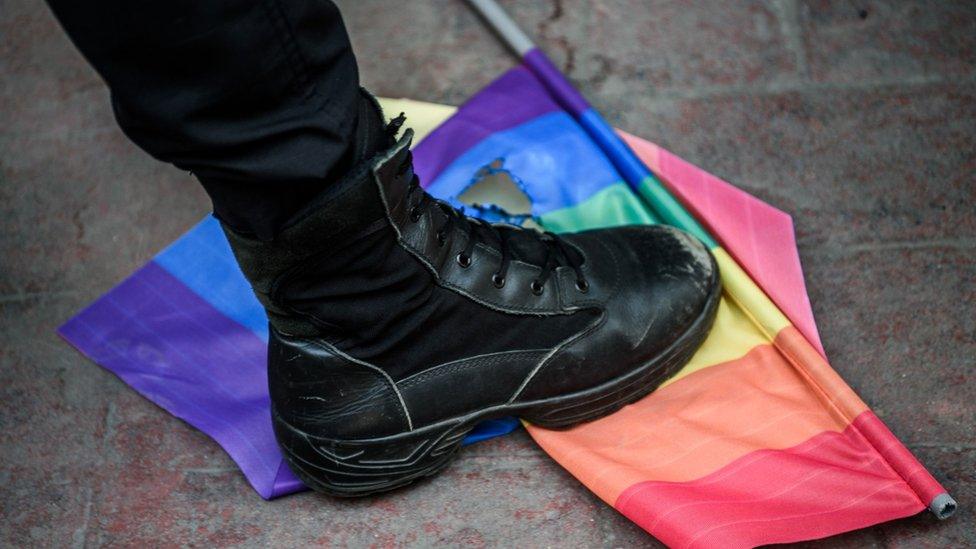
- Published17 May 2016
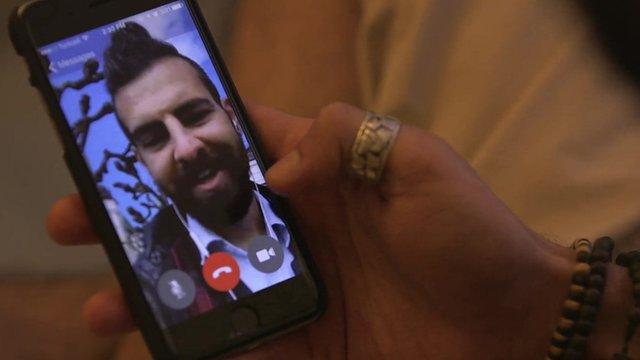
- Published26 March 2012
